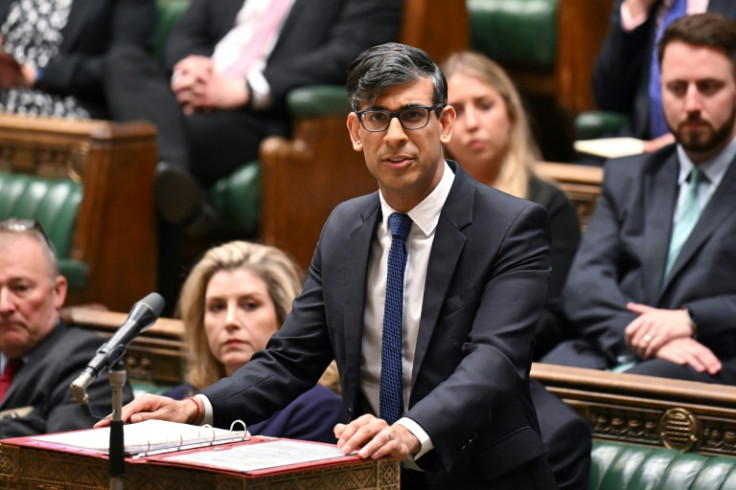UK Blood Scandal Victims To Receive Payouts This Year: Govt

Victims of a decades-long contaminated blood scandal that has killed about 3,000 people in Britain will start receiving final compensation payments this year, the government announced on Tuesday.
More than 30,000 people, including children, were infected with viruses such as HIV and hepatitis after being given the tainted blood between the 1970s and early 1990s.
Victims are still dying from what has been described as the biggest treatment disaster in the eight-decade history of the state-run National Health Service (NHS).
It follows similar scandals including the wrongful prosecution for fraud of hundreds of UK Post Office workers because of faulty software, and the 1989 Hillsborough disaster, which falsely blamed football fans for the tragedy that killed 97.
A bombshell report released Monday found the tainted blood affair was covered up by successive governments and health officials, and largely could have been avoided.
Prime Minister Rishi Sunak issued a "wholehearted and unequivocal" apology and promised compensation for everyone affected.
Updating parliament on those plans Tuesday, government minister John Glen said victims would receive interim payments of GBP210,000 ($267,000) within 90 days, before the final scheme becomes operational.
"Our expectation is that final payments will start before the end of the year," he added.
Glen said there was "no restriction" on the total cost of the package, which according to media reports could total more than GBP10 billion.
Friends, family members and carers of those infected will also be eligible for compensation, he announced.
Compensation will be paid to the estate of any person who has died from the scandal and money will be distributed either in a lump sum or via regular payments, Glen added.
Victims included those needing blood transfusions for accidents and in surgery, and those suffering from blood disorders such as haemophilia who were treated with donated blood plasma products, as well as the partners of those infected.
Judge Brian Langstaff's report, running to more than 2,500 pages, found a "catalogue of failures" with "catastrophic" consequences for victims and their loved ones.
It concluded that blood donors were not screened properly, the risk of AIDS was downplayed and too many transfusions were also given when they were not necessarily needed.
In some instances, children with bleeding disorders were treated as "objects for research".
When victims were told the truth, sometimes years later, this was sometimes done in "insensitive" and "inappropriate" ways, the report said.
There were even attempts to conceal the scandal, including evidence that officials in the health department destroyed documents in 1993, according to the report.
Sunak's official spokesman told reporters on Tuesday: "We must fundamentally rebalance the system so that we finally address this pattern so familiar from other inquiries like Hillsborough where innocent victims have to fight for decades just to be believed and heard.
"We will work together across government, our health services and civil society to ensure that nothing like this can ever happen in our country again."

© Copyright AFP 2024. All rights reserved.





















